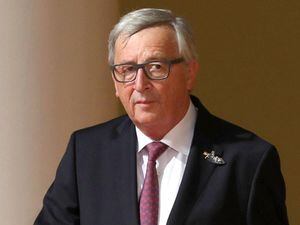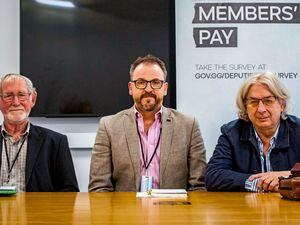A no-deal Brexit 'could disrupt our fresh food supplies'
WARNINGS about fresh food shortages, price increases and concerns about medical supplies have been sounded in the States as the island prepares for a no-deal Brexit.

While both the UK and the EU insist they want a deal, Jean-Claude Juncker, the president of the European Commission, said yesterday that the risk of no-deal has increased as a result of Tuesday’s vote in the House of Commons.
MPs backed an amendment to send Prime Minister Theresa May back to renegotiate the Irish backstop part of the withdrawal agreement, but the EU continues to insist that the agreement is the best and only one available.
Policy & Resources president Gavin St Pier updated the States yesterday on Guernsey’s Brexit planning, including announcing that a deal should be struck on World Trade Organization membership next week.
But he also echoed the sentiment that ‘the probability of a no-deal scenario has increased significantly’ and said it was only responsible to plan for this risk.
‘Most food and drink from the UK is received regularly from UK-based warehousing through Portsmouth,’ he said.
‘Delays at that port could cause disruption, particularly in the supply of fresh foods.
‘It’s not expected that the supply will cease, but there may be some things we are used to seeing on the shelves year-round that might not be available until the supply lines adjust to the “new normal”.
‘This may mean consumers notice a reduction in choice for a period. This will be similar to disruptions that we already occasionally experience in the supply of fresh foods for short periods, for various reasons. There could also be a knock-on impact on prices.
‘The States is maintaining its engagement with supermarkets, retailers, wholesalers and the freight industry and is monitoring supply and logistics chains for food to ensure that government is appropriately supporting industry.’
Guernsey is part of the NHS supply chain for essential medicines and medical equipment.
‘We are included in the UK’s contingency plans for medicines, which include the stock management being undertaken by NHS suppliers.
‘In recent months, Guernsey officials have been in weekly contact with the UK Department for Health to ensure that the UK’s contingency plans for medicines, medical supplies and medical gases include provision for the Crown Dependencies, so that access to essential supplies can continue as normal.
‘Consequently, Health & Social Care does not need to stockpile medicines and medical supplies at this time.
‘We will continue to liaise with the UK Government and relevant UK authorities to regularly review this in light of any disruption at Portsmouth.
‘We have researched alternative options as part of our work on emergency planning to ensure that our own supplies are adequate, if there was any immediate disruption.’
There is no disruption expected in fuel supplies, while a review of chemicals used for things like keeping a clean water supply has been undertaken and ‘where possible, adequate provision has been prepared for the anticipated period of disruption’.
States members were concerned about the food and medicine supply chain.
Deputy David de Lisle said that islanders and businesses were losing hope and were very worried about supplies getting through and wanted assurances.
In addition, he asked if, during talks, Deputy St Pier was warning UK representatives of the ‘dire consequences’ of Brexit to the islands.
Deputy St Pier said he could not give assurances, but could reassure people that it had been made very clear that a no-deal Brexit was not in the islands’ interests.





